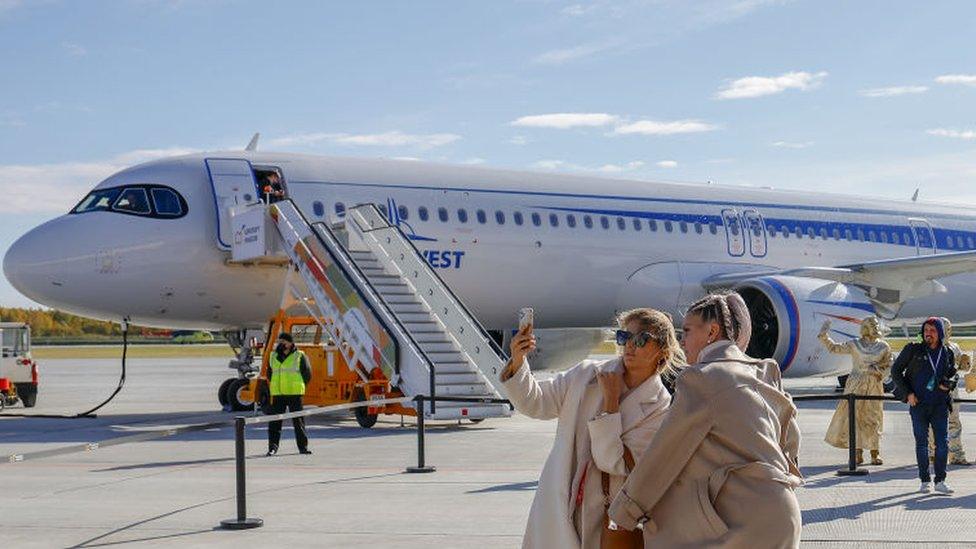Putin changes law on leased jets to keep them flying
- Published

The new law could allow foreign leased aircraft to keep flying domestic routes in Russia
Russia has implemented a new law making it harder for foreign aircraft leasing companies to repossess their planes in the face of Western sanctions.
The new law will allow foreign jets to be registered in Russia "to ensure the uninterrupted functioning of activities in the field of civil aviation".
Russian airlines have 515 jets leased from abroad worth about $10bn (Ā£7.7bn).
Foreign owners have until 28 March to get them back from Russian companies before sanctions kick in.
The move comes after Bermuda and Ireland, where nearly all foreign-leased planes operating in Russia are registered, said they were suspending certificates of airworthiness for those aircraft.
The measure, signed into law by President Vladimir Putin, could circumvent that by bringing registration and certification of safety within Russia's borders and use the foreign aircraft to fly domestic routes across the vast country.
Since the invasion of Ukraine on 24 February, Western companies have been terminating leases and asking for planes to be returned.
The majority of international air routes out of Russia are not being flown and many countries, including the UK, have banned Russia's national airline Aeroflot from flying in their airspace.
Hundreds of foreign-owned aircraft remain in Russia. To comply with sanctions, leasing companies are trying to get them back. But that is looking highly unlikely.
If Russia does hang onto these aircraft - collectively worth billions of dollars - they will be able to continue flying, in Russia and a handful of former Soviet republics at least.
But it's one thing to steal aircraft, it's quite another to keep them operating for any length of time.
Airbus and Boeing cannot supply spare parts, so when something needs to be replaced it will have to be taken from another plane, or be manufactured by a third party.
That has serious safety implications. It will also make it virtually impossible to insure those planes outside Russia. Servicing is also a concern - many aircraft are flown elsewhere for maintenance.
And when the crisis is over there will be a huge bill to pay.
If aircraft are not maintained properly, their value will plummet. So even if lessors get them back, they will demand compensation.
International aviation is an international business, and you have to play by the rules.
Russia could decide to thumb its nose at the rest of the world now. But one day it will want to rejoin the club - and the conditions for rejoining could be very harsh.